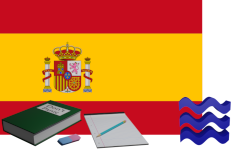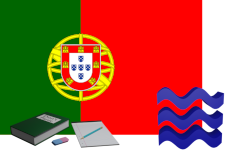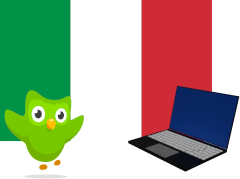For the other posts in this series:
Introduction & Credentials
Practicalities of Learning Languages
Language Teaching Problems I – Possible Causes
Language Teaching Problems II – Symptoms & Side-effects
Curing Language Trauma I – Setting the Stage
Curing Language Trauma II – Working on the Language
Benefits of Learning Languages
I’m one of those lucky folks who speak multiple languages. As I understand it, I’m one of only 1% of the population that are proficient in at least 5 languages. Quite aside from the practical advantages this gives me in life, it also gives me a lot of perspective on the whole area of languages. And my experience while learning them helped me get insight on the teaching and learning of languages, most notably in what works, what doesn’t work and what is downright counterproductive. In this series of posts I will lay out my observations as pertains to all of this.
This first part will establish my credentials and my linguistic resume to defend my legitimacy to write on this topic. The next part will go into the practicalities of learning a language. After that I will explore some of the factors that may explain why so many systems for teaching languages seem to backfire so badly, and then I’ll go on to explain in what ways I have observed that they are very counterproductive. Following that I’ll address how to avoid or resolve the negative consequences of those inadequate methods. And finally I will underline the advantages of learning and speaking multiple languages, which go far beyond what people usually think.
French – My Mother Tongue

It might come as a surprise to some of you, but I am not actually from an English-speaking country. I was born in France, by reputation one of the least Anglophonic countries on Earth. For the first four years of my life I lived in the Parisian suburbs, and of course my parents taught me French, which became my first language.
Then all 4.9 of us (my sister wasn’t quite born yet) moved to the USA, more specifically to California. But my parents never stopped speaking to us in French while we were there. In fact, they insisted on us speaking French with them and at home save in very few special circumstances. This helped us all maintain our French. Furthermore, we spent several years, in my case all my primary school years, in bilingual French-American schools. In these schools we had actual lessons in French, part of the official French curriculum, alongside English subjects.
We were then moved to American public school for three years. After that, as we started constantly traveling, we went back to a French home-schooling system, where I stayed throughout my high school years. I then spent three years in college in Nice and later, another year and a half in business school in Paris.
English – My “Father Tongue”

When I was 4 my parents, largely motivated by my father, decided to move the whole family to California. Of course, while in the USA I learned English. At first, my parents put me in an American preschool and had to brief the teachers on a few words of French for certain… logistical situations that may arise. But already just hanging out with the other preschoolers gave me my first real exposure to English, in total immersion mode. We went on to live a total of eleven years in California before leaving the country shortly after 9/11. Later on we spent a full year in Australia, and I myself went to live for a year in London during my business school years.
As a result, English has for most of my life been the main language of most everything I did. Most every internship and job I had involved English. I still speak to most of my friends in English. I consume mostly English-speaking media, and configure my devices’ interfaces in English. If French is my mother tongue, then English has truly become my “father tongue”.
Spanish – First Truly Academic Experience of Language

Middle school is when, in many countries, students start getting the option to learn other languages. I myself started learning Spanish in the 7th grade (when I was 12). Of course, given the geographical and relative cultural proximity, I was being taught Mexican Spanish. Though I started from the very basics, I quickly realized that I had a headstart, as I already spoke two languages fluently from an early age, one of them closely related to Spanish. This meant I was in a position to consistently outperform my classmates.
Later on, as my family and I started traveling, we started by spending several months in Mexico, which gave me the opportunity to practice, although admittedly we mostly visited rather touristic areas where English was more the norm. By then we’d switched to a completely French official school curriculum, and I was being taught Spanish the French way. In fact, I kept studying Spanish in the French system until I got into business school. I learned Spanish for another year while in my first year of business school in London, but in a more pragmatic way and from a teacher who was actually from Spain. This final year prepared me for my second year in business school, which I spent in Madrid. It was on arrival in Madrid that first time that I realized that I had, effectively, become completely fluent in the language*. Later I went on to live in Nicaragua and Barcelona, and two years ago I moved back to Madrid.
Portuguese – Where Immersion Made All the Difference

From 10th to 12th grade (age 15 to 18), I learned Portuguese in school. After that, however, I went for ten years with virtually no practice at all. Only rarely, during that period, did I have the chance to use it. I spent all of a week in Portugal, met only a few Portuguese or Brazilian people, and dated a Polish girl for a while who knew a bit of Portuguese. So that wasn’t very productive.
However, in 2014 I landed a job in Lisbon and moved there. I ended up spending 4 years in Portugal, working two successive jobs in two different cities. This is where my Portuguese really matured. I didn’t take any extra Portuguese lessons and chose to only improve empirically through immersion. And it worked! Over the entire time (and still now, to a lesser degree) I improvised* my Portuguese from what I know of Spanish and how its equivalent words usually are in Portuguese.
Italian – Where Personal Preparation Met an Opportunity at Work

While in Lisbon, I was working in IT support in French, English and Spanish. I was receiving a bonus on my salary every month for the French and the Spanish. I figured that I might earn an extra bonus if I learned another language, so I decided to go with the easiest one available to me. I started learning Italian with Duolingo, the free application, studying for at least an hour every day, using my hour-long round-trip commute time in the metro to do it. I happened to have an Italian housemate at the time, so I was able to practice with him on a fairly regular basis.
Interestingly, though, another opportunity to practice soon turned up, completely unexpectedly. See, I’d already put Italian on my resume, claiming to be conversational, because I was already able to improvise* a decent conversation from my knowledge of French and Spanish. So it was that just when I was halfway through the course, my boss called me to ask about my Italian, to which I replied that coincidentally, I was working on it at that very moment. As it happened, my team was going to have a new client soon which would require support in Italian, and the team had no Italian speaker on board yet. So he “gently” informed me that I’d soon be working in Italian too within two months’ time. After that, I redoubled my efforts on Duolingo, finished the course within weeks and passed the “test” at work. And sure enough, I soon started taking IT support calls in Italian, which allowed me to practice the language and ultimately reach proficiency.
German – My Current Challenge

Now we come to my latest language: German. Well, by latest I mean I finished learning it most recently. I started learning German with Duolingo back in 2012 or 2013, but over the years it was an on-and-off thing. I would pick it up, then two months later be discouraged and give it up again. But last summer, I committed to the idea of learning German and eventually moving to Germany, and went all the way, finally finishing the Duolingo course in December. I’m nowhere near proficient in German yet, but I am starting to be able to communicate* now.
All that experience built up my understanding of how to learn and teach languages. This has helped me truly see the best practices. It has also shown me some much less productive approaches. Juggling between them on a regular basis has shown me the true power of languages and the immense benefits knowing them gives you, going even further than most people realize beyond merely getting around abroad.
* More on the Three Steps and on improvising in the next post

6 thoughts on “Introduction & Credentials”